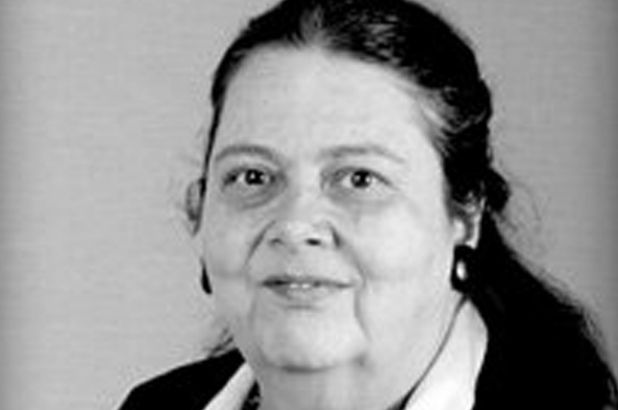
By Dan Murphy
This is a difficult story to write because it involves a disabled former Westchester judge who recently passed away. I attempt to write it, and share it with our readers, because of the concern that many in our county have about the way in which politics and our judiciary meet and intertwine, sometimes in inappropriate ways.
White Plains City Court Judge Elizabeth Shollenberger recently passed away at the age of 63. Shollenberger was appointed to the White Plains Court in 2016. Prior to her appointment, Shollenberger was chairwoman of the White Plains Democratic Party for 13 years and also campaign manager for White Plains Mayor Tom Roach.
A selection process to appoint an open seat on the White Plains Court was undertaken by the White Plains Judicial Review Committee, who interviewed 30 applicants and made a recommendation to the White Plains Council and Roach.
The committee did not recommend Shollenberger to the council but at the White Plains Council meeting Dec. 20, 2016, the Common Council voted to appoint Shollenberger, with Roach recusing himself, citing the fact that Shollenberger was his campaign manager. Council member Beth Smayda abstained without explanation, but Shollenberger was appointed to the court.
We can all agree that Shollenberger did have an admirable legal career and background prior to her appointment. A graduate of Yale Law School, much of her legal background was in both state and federal courts, helping and representing persons in need of legal representation concerning housing, government benefits and consumer protections.
But at the time of her appointment less than three years ago, she suffered from a number of illnesses and ailments, including hypertension, chronic pulmonary disease, and a fungal infection in her lower left leg stemming from a 1989 fall between the gap of a subway car and the station platform.
After her appointment, Shollenberger resigned as chairwoman of the White Plains Democratic Committee. Her husband, Tim James, replaced her as chairperson.
There was vocal opposition to Shollenberger’s appointment at the time. Mark Elliott, who served on the White Plains Judicial Review Committee, accused Roach of showing “utter contempt of this process” in a scathing Dec. 23 email to the mayor, claiming that Roach “disregarded the committee’s views, and instead, presumably for your personal political gain, appointed a machine politician as a City Court judge.”
Elliot, an attorney and partner in the New York City law firm of Phillips, Nizer, was further quoted in many stories about Shollenberger: “She came to the interview with an oxygen tank. She’s very fragile. No reasonable person could have looked at her as I did and thought that she could finish her 10-year term. The fix was in.”
Elliott, who also served as the White Plains chairman of the Board of Ethics, added: “I’m deeply offended by the process. They wasted all of our time. This was pure politics. My objections are about the process.”
Another person who objected was City Councilwoman Milagros Lecuona, who at the time was running against Roach for mayor. Lecuona questioned the appointment of Shollenberger, saying it was done so that Roach “would have the support of the chair of the Democratic Party.” But in the end, Lecuona voted for Shollenberger’s appointment to the court, at a salary of $175,000 per year.
Shollenberger’s ailments prevented her from serving days after she took the bench; she went on medical leave one week after she was sworn in.
One side effect of Shollenberger’s many medications was stress to her gastrointestinal system, requiring her to have quick access to the restroom. “One day in May 2017, Judge Shollenberger could not make it to the bathroom and according to a lawsuit filed by Shollenberger, ‘In distress, she defecated in a plastic-lined wastepaper basket.’
“Courthouse staff closed down her courtroom and cleaned up the mess in hazmat suits, and complained to the Office of Court Administration. The OCA ruled that Shollenberger was unable to perform her job, and she was suspended with pay.
After accommodations were made for Shollenberger, including retrofitting the chamber to make it easier for her to walk to her seat, she returned to the bench but was suspended a second time. A spokesperson for the OCA, Lucian Chalfen said: “An administrative order was signed on July 13 returning her to White Plains City Court after numerous accommodations were made for her at the facility.
“A month later, on Aug. 15, an administrative order was signed reassigning all matters and cases in front of her to the other judges. The reassignments were made for her personal, and the public’s health and safety at the court.”
After the second suspension, with pay, Shollenberger sued the New York Court System in 2018, claiming that her rights were violated based on the American’s for Disability Act. The lawsuit asked for her reinstatement to the bench and “reasonable accommodations for her disabilities.”
But many court sources in White Plains and other Westchester democrats claim that Shollenberger was already given “reasonable accommodations” in her courtroom, including a specially designed handrail that was installed to help her climb three steps to her judicial seat. Named defendants included New York State Chief Judge Janet DiFiore and Chief Administrative Judge Lawrence Marks.
During her suspension and lawsuit, questions were again raised about her appointment. “It is safe to say that no matter what the result is in this case, this was, to put it mildly, a disastrous judicial appointment,” said Elliott. “In addition to paying the judge more than $200,000 a year in salary and benefits, now the taxpayers have to foot the bill for this lawsuit.”
Lecuona said: “If I knew what I know now, I would not have voted to support her. This is going to be a big problem for the taxpayers. It’s financially very irresponsible.”
One Westchester Democratic insider said: “Three questions need to be asked. Was she qualified to be appointed to the bench? Most people would say yes, based on her experience.
“Second question: Were reasonable accommodations made to help her in her job? I think most people would say yes, the courthouse in White Plains did try to accommodate her. The third question is: Was she able to perform her job at the end? That question is a tough one to answer.”
Before she passed away, a defiant Shollenberger said: “I have no intention of retiring. I want to work. I want to be a judge. Judges get sick all the time.”
The ethical questions over Shollenberger’s appointment are greater than her illnesses and disability. Should a chairperson of a Democratic party and campaign manager for a candidate for mayor also be permitted to seek appointment to become a judge?
This case is not unique to Shollenberger, it happens all of the time. What can be done to prevent it from happening again?





